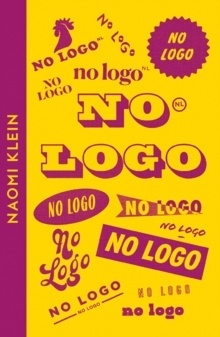No logo

Editorial Harper Collins
Fecha de edición mayo 2021
Idioma español
EAN 9780008485139
512 páginas
Libro
encuadernado en tapa blanda
Dimensiones 129 mm x 197 mm
Resumen del libro
Introducing the Collins Modern Classics, a series featuring some of the most significant books of recent times, books that shed light on the human experience classics which will endure for generations to come. When No Logo was first published, it became an instant bestseller and international phenomenon. Its riveting exposé of the branded and corporate world in which we live became a rallying cry for rebellion and self-determination.
Engaging, humanising and inspiring, No Logo is a book that defined both a generation and its language of protest. Its analysis is as timely and powerful as ever.
If the world really is just one big global village, then the logo is its common language understood by - if not accessible to - everyone. In "No Logo", Klein undertakes a journey to the centre of a post-national planet. Starting with the brand's birth, as a means of bringing soul to mass marketing, she follows in the logo's wake and notes its increasing capacity for making the product subservient - a strategy reaching its apotheosis in brands such as Tommy Hilfiger, who actually produces nothing but lends his signature to a wardrobe of clothing statements made elsewhere.
Beyond this she reaches her core argument - the now uneasy struggle between corporate power and anti-corporate activism - via sweatshop labour, submerged identity and subversive action.
Biografía del autor
Naomi Klein (Montreal, 1970), periodista galardonada con varios premios y colaboradora habitual en The Nation y en The Guardian, Naomi Klein es la autora del bestseller internacional, No Logo: El poder de las marcas (Paidós), con más de un millón de ejemplares vendidos en todo el mundo y que ha sido traducido a 28 idiomas.<br> Tras el éxito de No Logo, en 2002 publicó una recopilación de sus ensayos y trabajos periodísticos, Vallas y ventanas: despachos desde las trincheras del debate sobre la globalización (Paidós). Dos años después, en 2004, estrenó The Take, un documental cinematográfico sobre las fábricas ocupadas en Argentina, coproducido con el director Avi Lewis. Este documental estuvo en la selección oficial de la Bienal de Venecia y obtuvo el Premio del Jurado al Mejor Documental en el Festival de Cine de Los Ángeles, del American Film Institute. Durante este mismo año, Klein fue galardonada con el premio James Aronson al Periodismo de Justicia Social por sus reportajes desde Irak, publicados en Harperx{0026} x02019;s Magazine.<br> Naomi Klein ha sido titular de la cátedra Miliband en la London School of Economics y es doctora honoris causa en Leyes por la Universidad de Kingx{0026} x02019;s College, de Nova Scotia. Alcanzó el puesto undécimo, el más alto logrado por una mujer, en el Sondeo Global de Intelectuales, un listado de los intelectuales más relevantes del mundo que confecciona la revista Prospect junto con la revista Foreign Policy.








